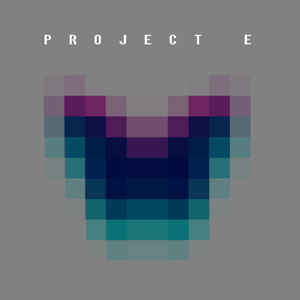Project E Megacity EP
It might not win any points for originality, but Megacity, the debut EP from Project […]

It might not win any points for originality, but Megacity, the debut EP from Project E, sure does retro right. This shouldn’t be surprising, as Merc, the label putting it out, has been almost entirely defined by a discography that venerates dance music’s past through referentiality and sampling. Consisting of Merc label head Mark E and jazz keyboardist Nathaniel Woodcock, the duo’s first release offers three tracks of vintage Chicago by way of a layover in the British Isles.
There’s an obsessive level of attention to detail that’s present immediately in the first notes of opener “Megacity.” A loose bell melody is met with laidback electric piano chords and open hi-hats. Percolating synth pops provide the hook; taken together, it’s the kind of track that could only be made in hindsight. It’s a collage of interpolation that pulls itself together from some of the most defining moments of early house.
This aesthetic runs through the rest of the release. Second track “Mozaic” opens with an echoed-out sample of a bongo. For the first few seconds, it almost seems as if it’ll turn into a tracky, contemporary house bang. However, a squirming bassline and weird, almost Indian-sounding flourishes push the cut back into throwback territory as 808 cowbells and soft pads carry the track along.
Finally, the EP comes to a close much as it began, with the comparatively club-ready churn of “Nightbeat.” Police sirens chirp, synths bleep, and a Moroder-style arp bass chugs—all mingling beneath the driving click of hi-hats set to rapid fire. That looseness is here again, with rose-colored blasts of angular synthesis providing a bed for an occasional faux steel-drum riff.
As an exercise in reliving the glory days of the 1980s, Megacity succeeds flawlessly. Yet one can’t help but wonder if we haven’t moved past the moment of simulation. In its three tracks, the EP never feels as though Project E is bringing anything new to the table beyond contemporary production techniques. It’s too bad, because it sounds like the potential is there.

